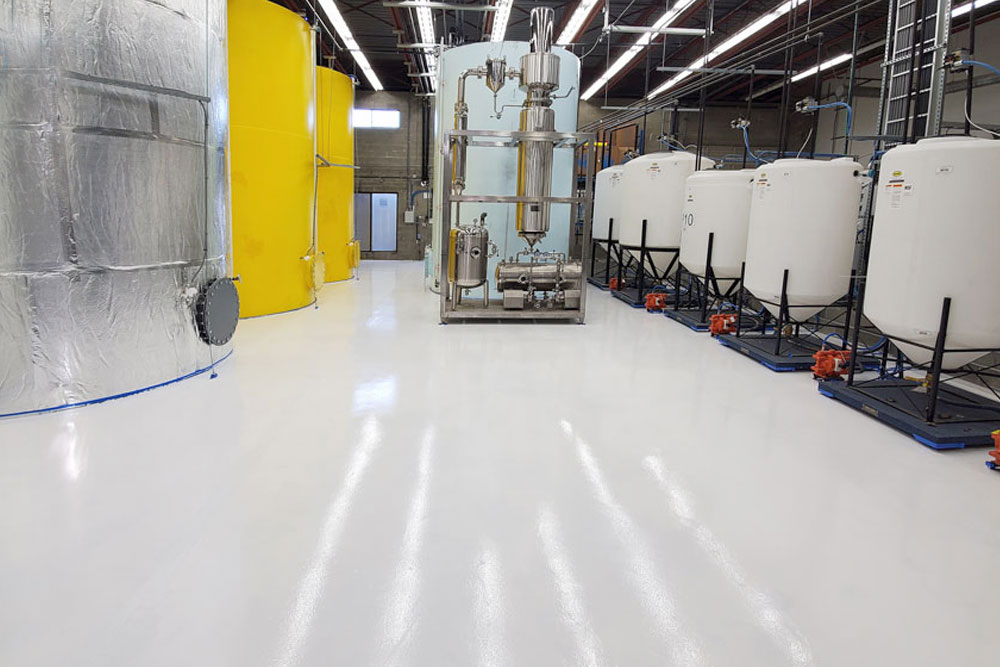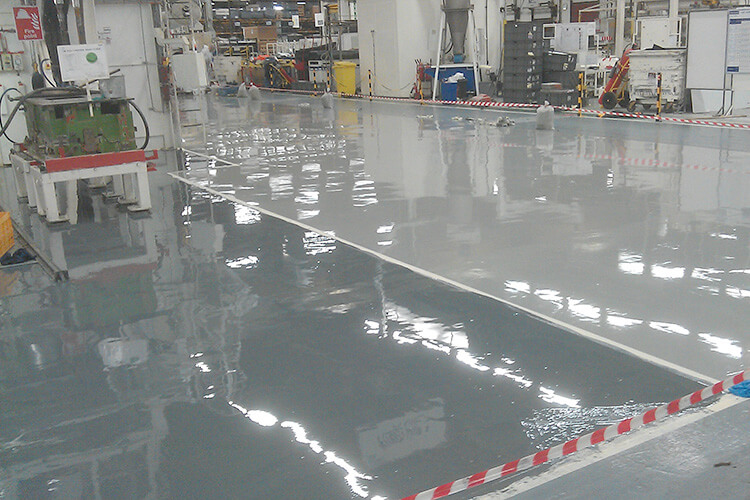Chemical-Resistant Coatings
Your Epoxy Flooring & Concrete Polishing Specialists
Request Free Quotation.
Our experts will assess your space and recommend the best solution for a flawless, lasting finish.


What is a Chemical-Resistant Coating?
Chemical-resistant coatings are specialized protective layers applied to surfaces to shield them from chemical exposure, corrosion, and environmental damage. These coatings are particularly valuable in environments where surfaces are exposed to acids, alkalis, solvents, and harsh industrial chemicals.
Types of Chemical-Resistant Coatings
Epoxy Coatings
- Highly resistant to acids, alkalis, and solvents.
- Excellent for industrial floors, warehouses, and food processing plants.
Polyurethane Coatings
- Offers chemical resistance along with UV stability.
- Ideal for areas exposed to sunlight and weather elements.
Vinyl Ester Coatings
- Superior resistance to corrosion and high-temperature environments.
- Commonly used in chemical plants and wastewater treatment facilities.
Fluoropolymer Coatings
- Highly resistant to extreme chemicals and temperatures.
- Often used in highly corrosive environments, like chemical storage tanks.
Novolac Epoxy Coatings
- Extremely high chemical and heat resistance.
- Perfect for tank linings and heavy industrial applications.
Advantages of Chemical-Resistant Coatings
- Prevents Corrosion: Protects surfaces from rust and chemical degradation.
- Durability: Extends the life of equipment and flooring in harsh environments.
- Safety Enhancement: Reduces surface wear and prevents chemical absorption, contributing to a safer work environment.
- Easy Maintenance: Surfaces are smooth, non-porous, and simple to clean.
- Aesthetic Appeal: Provides a polished, clean look to industrial and commercial spaces.
Disadvantages of Chemical-Resistant Coatings
- Cost: Initial installation costs can be high compared to traditional coatings.
- Application Sensitivity: Requires professional installation for proper curing and effectiveness.
- Surface Preparation: Surfaces must be thoroughly cleaned and prepared, which can be labor-intensive.
- Limited Flexibility: Some coatings, like epoxy, can be prone to cracking if the substrate flexes or shifts.
Applications
1. Industrial:
- Chemical processing plants
- Manufacturing facilities
- Oil refineries
- Wastewater treatment plants
2. Commercial:
- Warehouses
- Food processing plants
- Breweries and distilleries
- Car service centers
3. Residential:
- Garage floors
- Workshops
- Basements exposed to chemical spills
4. Institutional:
- Hospitals
- Laboratories
- Educational facilities
Maintenance of Chemical-Resistant Coatings
- Regular Cleaning: Use non-abrasive cleaners to maintain surface integrity.
- Immediate Spill Cleanup: Prevents long-term chemical damage.
- Periodic Inspections: Identify chips or wear spots for touch-ups.
- Avoid Abrasive Tools: Prevent scratching or compromising the coating.
Longevity
5 to 20 years depending on:
- Type of coating
- Level of chemical exposure
- Maintenance routines
- Quality of installation
Service Areas:
London, Brantford, Kitchener, Cambridge, Waterloo, Guelph, Hamilton, Ancaster, Burlington, Waterdown, Milton, Oakville, St. Catherines, Niagara Falls, Stratford

